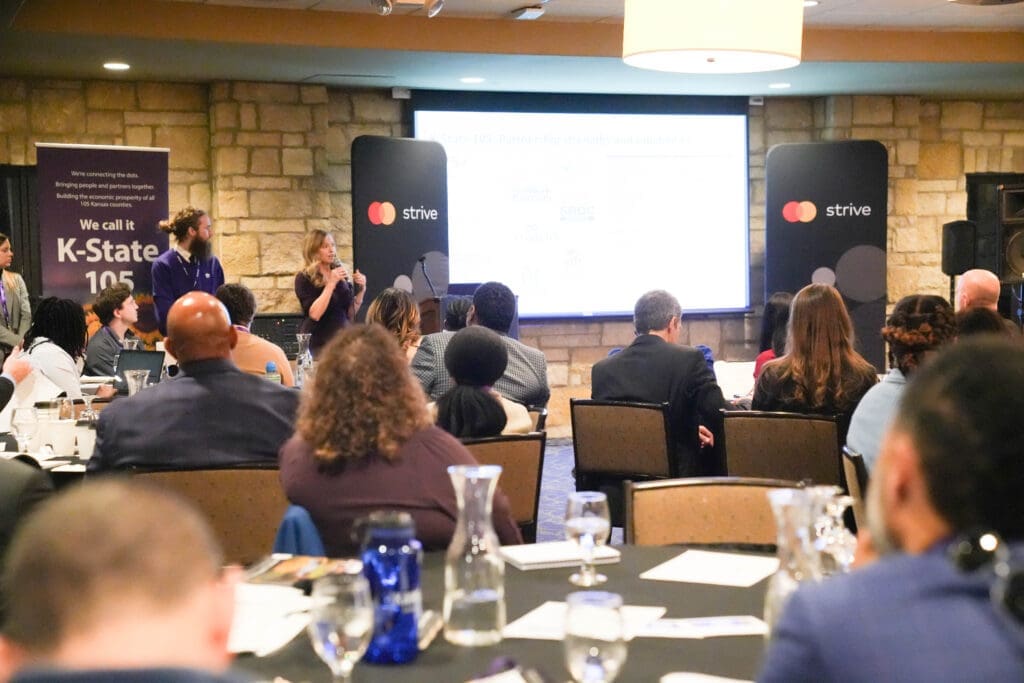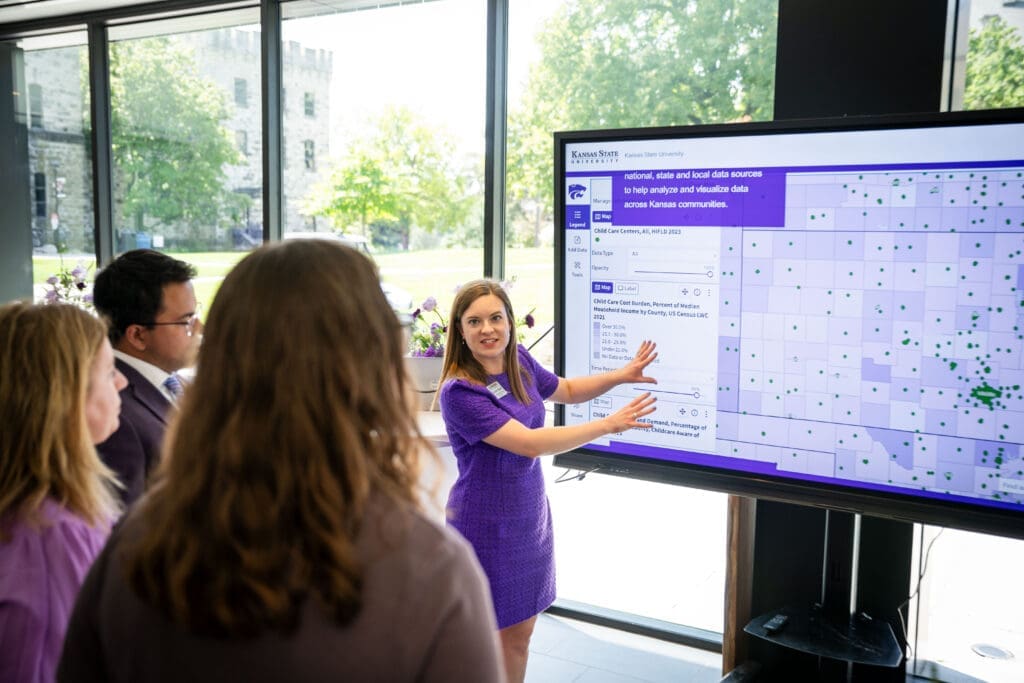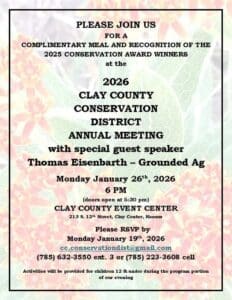By Trish Svoboda/Images courtesy K-State
Kansas State University is helping Kansans better understand their communities through All Things Kansas, a free, interactive data platform launched in early 2024. Designed to serve all 105 counties, the tool allows users to access and visualize data critical for local planning, business development, and community growth.
Jessica Gnad, director of economic development at K-State, said “The audience of the platform is anybody in Kansas, but we especially find that it’s being used quite a lot by business leaders, community leaders, elected officials, and, of course, extension agents. It’s for anybody that just wants to have that better understanding of their home, of their community, or even make comparisons in a region.”

All Things Kansas includes over 30,000 data layers sourced from more than 120 national and state agencies. While K-State doesn’t generate the data, the university collects and organizes publicly available information into one centralized, user-friendly resource. Most datasets update automatically, saving users time and making complex information accessible to everyone.
Jennifer Tidball, communications director for economic development at K-State, said one of the advantages is you can see datasets from multiple sources. “Some examples of datasets we have are from the Centers for Disease Control and Prevention, the USDA, US Department of commerce, Bureau of Labor Statistics, organizations like that.”

Popular features include more than 50 pre-made maps on topics like broadband, childcare, housing, agriculture, and healthcare, along with customizable reports that provide in-depth, location-specific data.
Two new tools—Build Your Business and Build Your Food Business—help entrepreneurs explore Kansas’ business landscape. “Our Build Your Business page includes maps and reports that really focus on helping business leaders and entrepreneurs get to know the Kansas business landscape. Through those maps and reports, it’s providing insight and context to help people build their business in Kansas,” said Tidball. “Similarly, what we’ve also done is we’ve launched a Build Your Food Business page. What that does is, again, it creates maps and reports to help business leaders, but that page specifically focuses on resources to help business leaders in the food industry.”
To date, the platform averages around 350 unique users per day, and Tidball and Gnad have been conducting live and virtual demonstrations across the state to train users. The university is continuously expanding All Things Kansas, adding new data layers and features based on user input. A support page with guides and tutorial videos is also available to help users navigate the tool.
K-State encourages Kansans to explore the platform and share ideas for future enhancements. For more information or to request a demo, users can contact the university’s economic development team at ecodevo@ksu.edu. The platform is available at www.k-state.edu/allthingskansas. The tutorial video can be found at www.youtube.com/watch?v=OJ6m5UcB9T8













